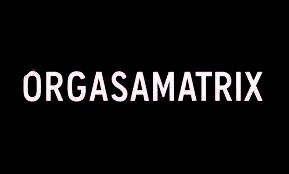Introduction
The internet is full of unusual words and phrases that quickly gain attention, and one such emerging keyword is Herbciepscam. At first glance, it appears to be a combination of terms that suggest both something natural (herb) and something suspicious (scam). Because of its structure and usage online, Herbciepscam has sparked curiosity, confusion, and in some cases, concern. In this article, we’ll explore its meaning, origins, possible interpretations, and relevance in today’s digital landscape. By the end, you’ll have a clear picture of why Herbciepscam matters and how it connects to broader trends in internet culture.
What Does Herbciepscam Mean?
Herbciepscam is not yet a dictionary-defined term, but its components give hints about its potential meaning. The prefix “herb” suggests something natural, plant-related, or medicinal, while “scam” clearly signals fraud, deception, or trickery. The middle portion, “ciep”, is less obvious but could represent a coined fragment meant to give the word a unique identity. Taken together, Herbciepscam can be interpreted as a label for fraudulent practices involving herbal products, supplements, or wellness claims.
Origins of the Term
The exact origin of Herbciepscam is uncertain, but like many new internet words, it seems to have emerged in online communities and discussions. Early usage often connects the term with consumer skepticism about herbal remedies sold online, especially in spaces where product claims outpace scientific evidence. Over time, it has grown into a catch-all phrase used by people warning others about misleading health advertisements, unverified cures, and questionable supplement sellers.
Why Herbciepscam is Trending Online
The rise of Herbciepscam reflects larger trends in internet culture. With the wellness industry booming globally, more individuals turn to natural remedies, teas, oils, and supplements. However, not every product on the market is genuine. Online scams have become more sophisticated, and consumers have developed terms like Herbciepscam to call out and identify misleading content. Its growing visibility suggests that internet users are taking a more critical stance toward online health claims.
Connection to Herbal Remedies and Scams
Herbs and natural products are often marketed as safe, organic, and effective. While many legitimate companies produce high-quality herbal products, others exploit consumer trust. The term Herbciepscam highlights these shady practices, such as:
- Exaggerated promises of instant cures.
- Fake endorsements from celebrities or doctors.
- Overpriced products with little to no real benefit.
- Hidden subscription traps tied to “free trials.”
This connection makes Herbciepscam more than just a word—it becomes a consumer warning signal.
How Social Media Amplifies Herbciepscam
Social media platforms play a huge role in how Herbciepscam is spreading. Influencers and ad campaigns can make questionable herbal products go viral overnight. When people feel tricked, they use terms like Herbciepscam to share their negative experiences and warn others. Hashtags, memes, and discussion threads amplify the message, creating a digital snowball effect that makes the term more recognizable over time.
The Psychology Behind Herbciepscam
Why do people respond so strongly to Herbciepscam? The answer lies in consumer psychology. Health and wellness are deeply personal, and when someone feels deceived about a product that promises better health, the reaction is emotional. By labeling such experiences with a catchy word like Herbciepscam, individuals find a way to process disappointment, share frustrations, and build awareness in their communities.
Online Scams and Their Broader Context
Herbciepscam is part of a much larger pattern of internet scams. From fake investment opportunities to counterfeit luxury goods, the digital world has no shortage of deceptive practices. The unique aspect of Herbciepscam lies in its focus on wellness and herbal products, which tap into people’s desire for natural solutions. This makes it an important example of how scams adapt to consumer trends.
Scientific Importance of Examining Terms Like Herbciepscam
While the word itself may be informal, studying Herbciepscam has value. It shows how language evolves online to help people make sense of new challenges. It also signals the need for stronger consumer protection in the wellness industry. By examining how Herbciepscam is used, researchers and policymakers can better understand consumer concerns and design strategies to reduce online fraud in health-related spaces.
How to Spot Herbciepscam Practices
If you come across an herbal product online, there are several red flags to watch out for that align with the spirit of Herbciepscam:
- Unrealistic promises of miracle cures.
- Lack of scientific backing or vague references to “ancient wisdom.”
- Pushy marketing tactics, like limited-time offers or aggressive countdown timers.
- No verified reviews or suspiciously identical positive feedback.
- Unclear company details or missing contact information.
Recognizing these patterns empowers consumers to protect themselves from falling victim to scams.
Cultural Impact of Herbciepsca
Beyond its practical meaning, Herbciepscam represents how digital culture responds to deception. It’s a reminder that internet users are no longer passive consumers—they are active critics who coin terms, spread awareness, and fight back against misinformation. The cultural impact of Herbciepscam lies in its ability to turn frustration into a tool of education for the broader online community.
Future of the Term Herbciepscam
Like many online buzzwords, the future of Herbciepscam depends on how widely it continues to spread. It may remain niche, limited to wellness discussions, or it could evolve into a general label for scams disguised as natural or eco-friendly solutions. Either way, its existence highlights the ongoing battle between genuine innovation and deceptive practices in the digital marketplace.
Why Herbciepscam Matters Today
Herbciepscam matters because it is both a linguistic creation and a social response. It signals the need for caution in a world where health-related misinformation can spread rapidly. It also reflects how internet users collaborate to name, share, and resist deceptive practices. For businesses, it is a warning to maintain transparency and authenticity, while for consumers, it’s a reminder to research before trusting any herbal claims online.
Conclusion
Herbciepscam may be a relatively new word, but its meaning is powerful. It captures the blend of hope, trust, and skepticism that defines today’s digital wellness market. By understanding its origins, cultural role, and practical implications, we uncover not only the truth behind this emerging online term but also the broader lessons it teaches about digital literacy, consumer awareness, and online trust. As the internet continues to evolve, terms like Herbciepscam will remain valuable tools for identifying and confronting deception in creative ways.




